With American drivers gaining increasing enthusiasm for small cars as the 1970s dawned, General Motors decided that Oldsmobile dealers needed something smaller than the Cutlass in their showrooms. A Pontiac-ized version of the Chevrolet Nova went on sale as the Ventura starting in the 1971 model year, and Buick and Oldsmobile got their own versions of the Nova — the Apollo and Omega — starting in 1973. Today’s Junkyard Gem is an example of the Nova-based Omega, found in a Denver car graveyard recently.
The timing of the Omega’s launch turned out to be nearly perfect, because OPEC shut off the oil taps in the fall of 1973 and sparked a huge demand for cars that got decent fuel economy. Two years later, Olds dealers got their own version of the (Vega-derived) Chevy Monza subcompact.
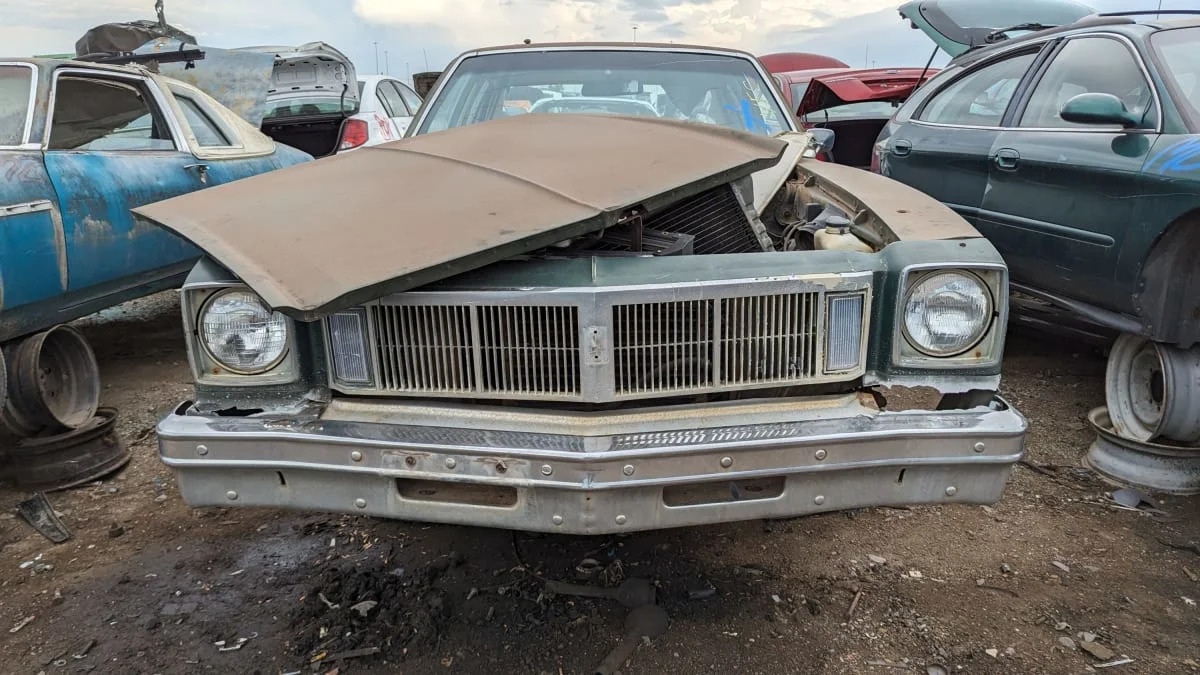
The Omega, Ventura (which became the Phoenix starting in 1977), Apollo (which became the Skylark starting in 1976) and Nova looked pretty similar to each other, but each got a grille resembling the more expensive models in their respective divisions. The ’76 Omega’s snout looks a bit like the one on that year’s Cutlass Supreme, which was the best-selling new car in the United States that year. Who at that time could have predicted that Oldsmobile would get the axe just 28 years later?
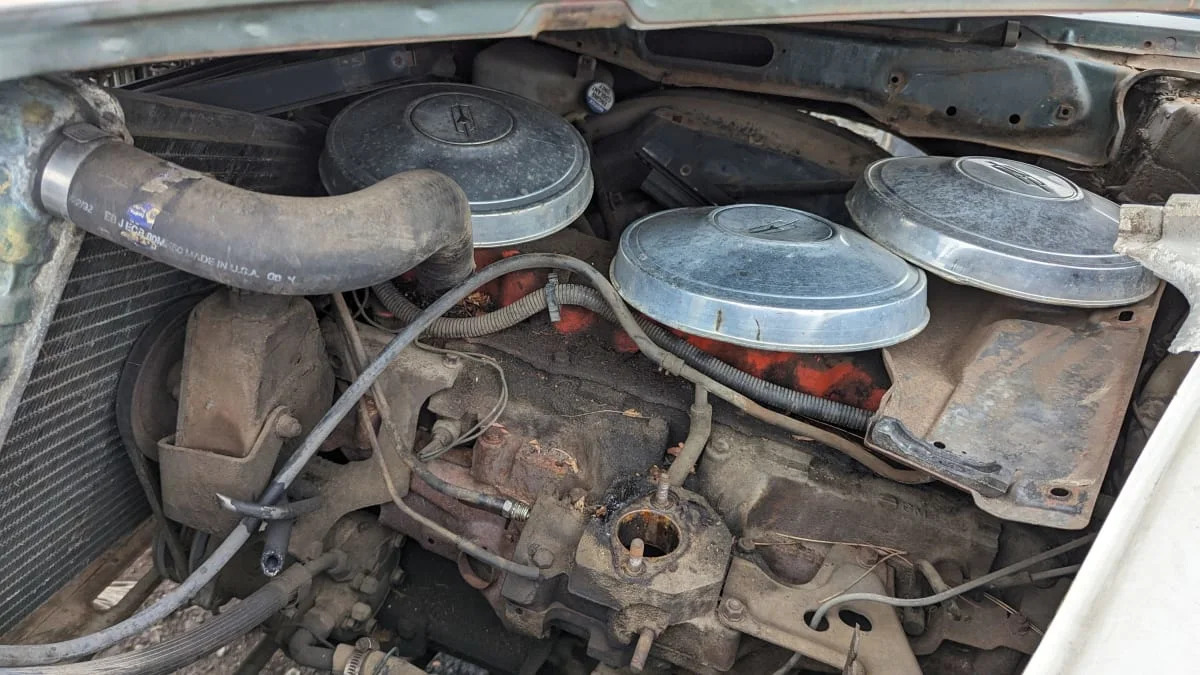
If you got the base engine in your ’76 Omega, the scene under the hood was pure Chevrolet: a 250-cubic-inch (4.1-liter) straight-six pushrod engine, rated at 105 horsepower and 185 pound-feet. That’s what this car has. For an extra $90 (about $495 in 2023 dollars), the 260-cubic-inch (4.3-liter) Oldsmobile V8 and its 110 horsepower was available; $195 ($1,072 in today’s dollars) would purchase the 155-horse Buick 350 (5.7-liter) V8.
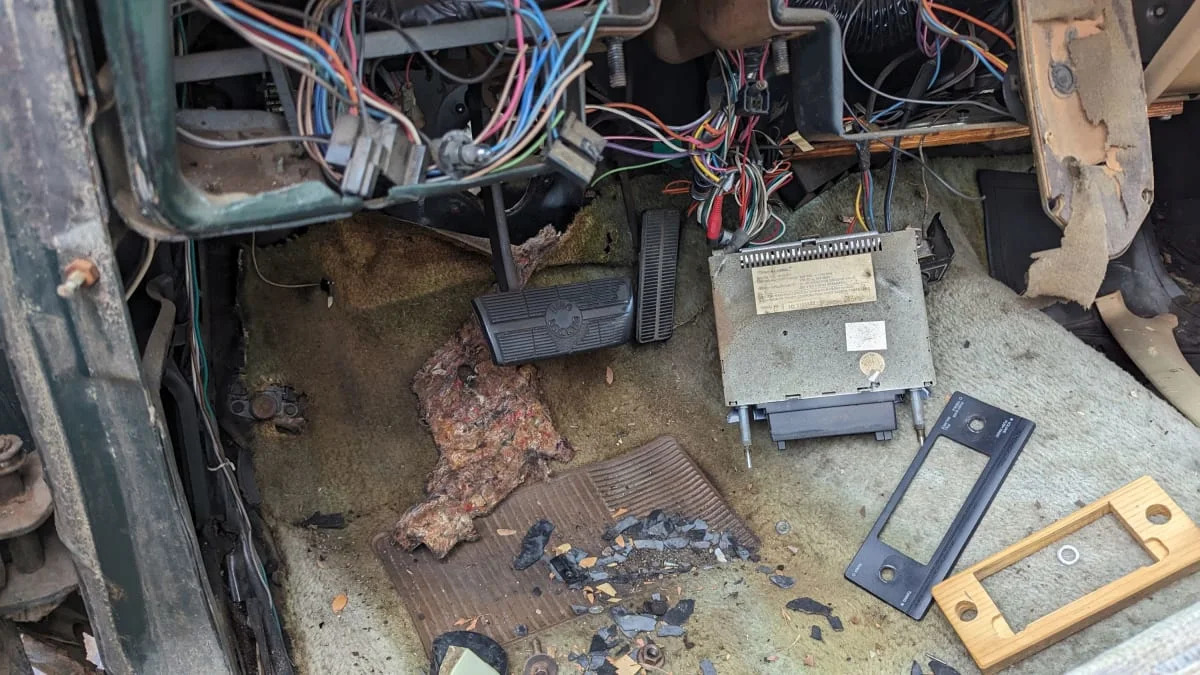
The base transmission in the 1976 Omega was a three-speed column-shift manual, though $28 extra ($154 today) would make it a three-on-the-floor manual. The 1979 Nova, Omega and Phoenix were the last new cars available in the United States with three-on-the-tree manual transmissions. Amazingly, you could get an optional five-speed manual in the 1976 Omega, at a cost of $244 ($1,342 after inflation). This car has the optional three-speed automatic, which tacked on a hefty $262 ($1,440 now) to the out-the-door price.
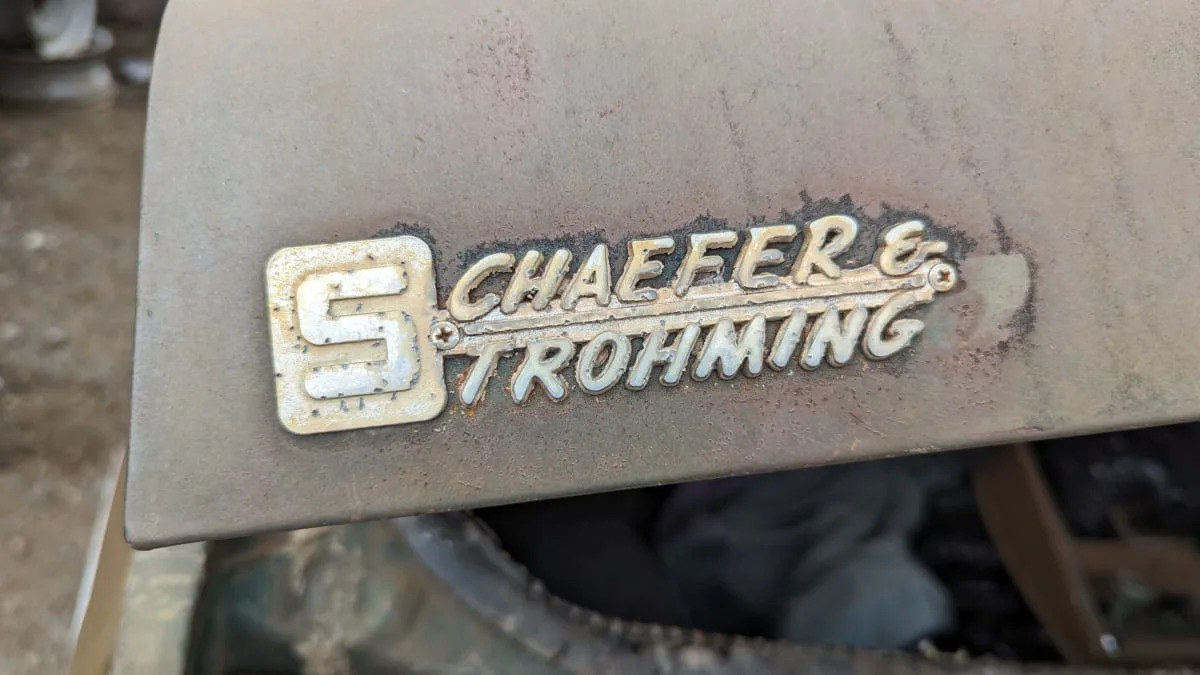
This car appears to have started out at the Schaefer & Strohminger dealership in Baltimore, after being built at the legendary Willow Run Assembly plant in Michigan. Before GM owned Willow Run, it was the birthplace of Kaiser-Frazer cars and B-24 Liberator bombers.
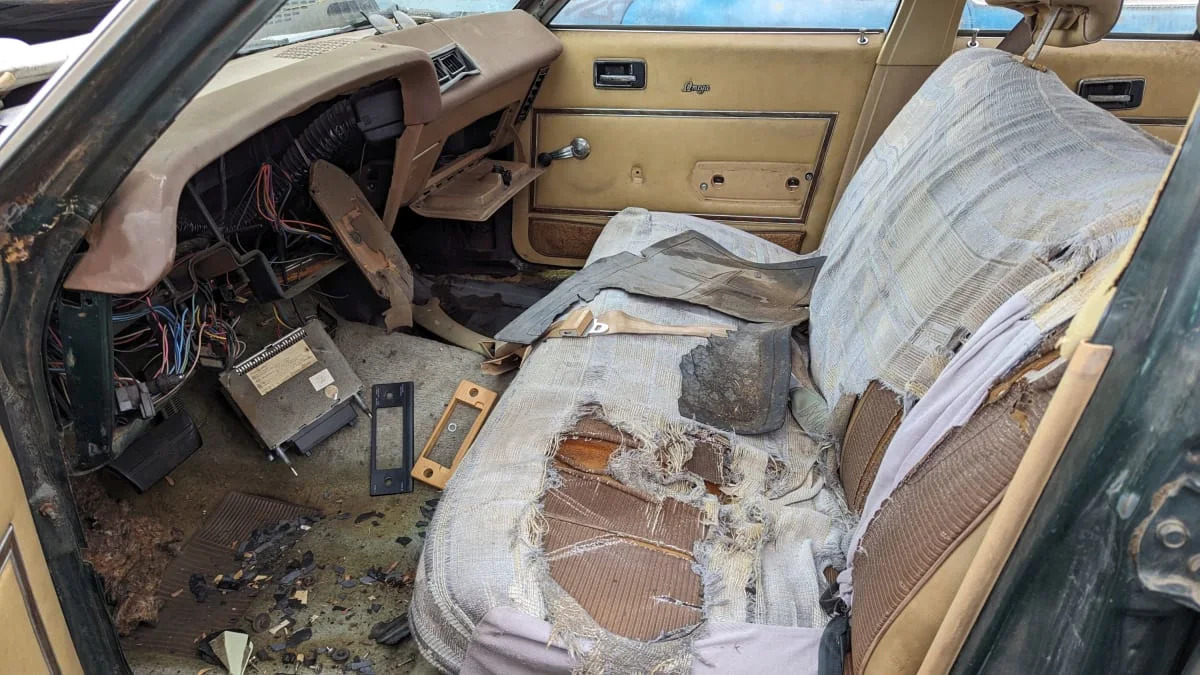
It’s very rough, with plenty of rust and an interior scorched by decades of harsh weather.
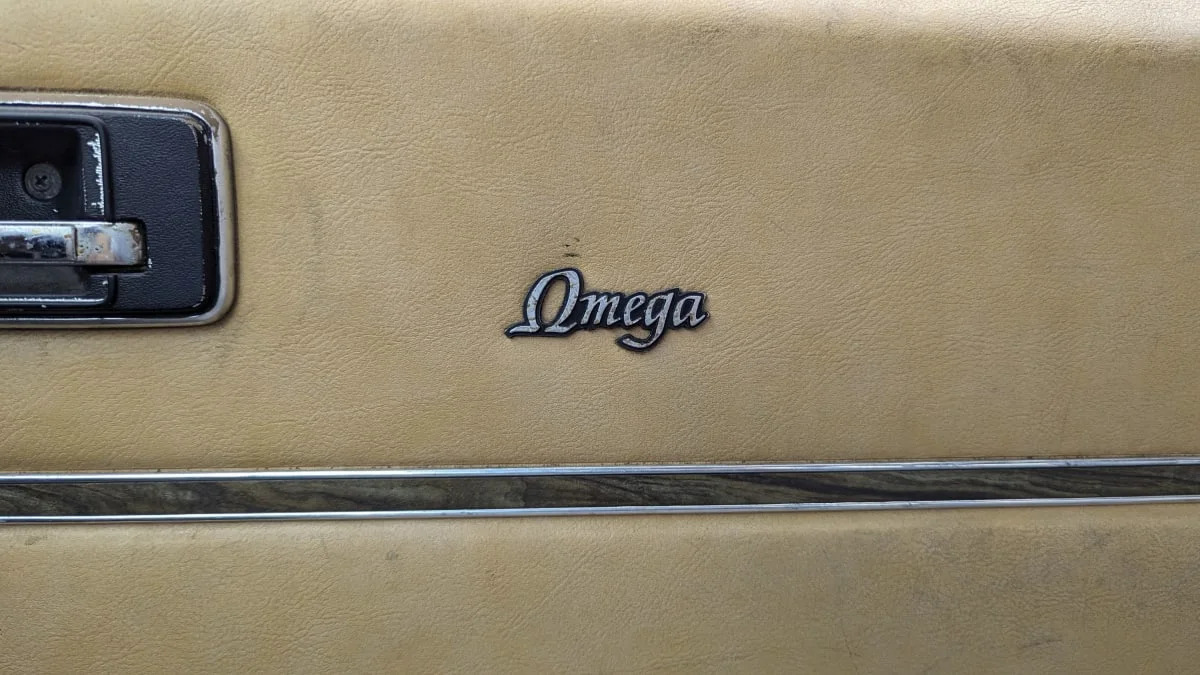
When the Nova was replaced by the far more modern Citation for the 1980 model year, the Omega name went onto the Oldsmobile version of that car. Production continued through 1984.
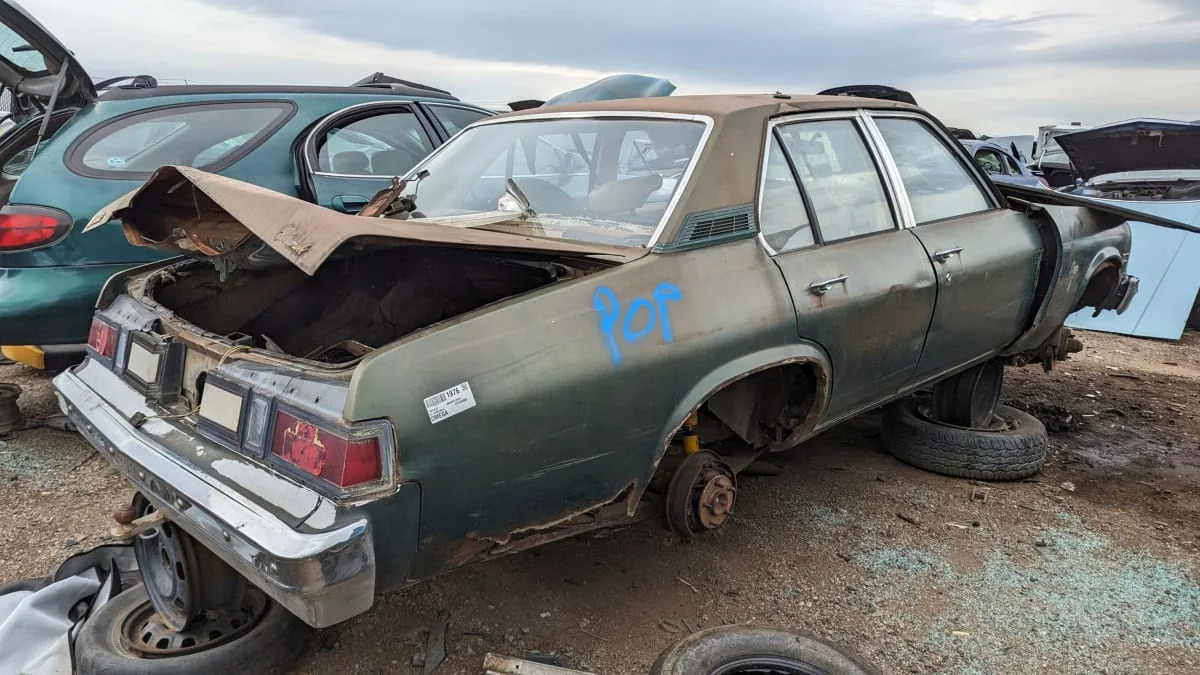
The MSRP for the 1976 Olds Omega sedan was $3,514, or about $19,320 in 2023 dollars. The Nova sedan started at $3,283 ($18,050), the Ventura sedan was $3,361 ($18,479), the Skylark sedan was $3,609 ($19,842) … and the Nova-based 1976 Cadillac Seville cost an impressive $12,479 ($68,610).
The Omega hatchback was the symbol of a woman’s independence.
Check it out, sport!
Read the full article here


